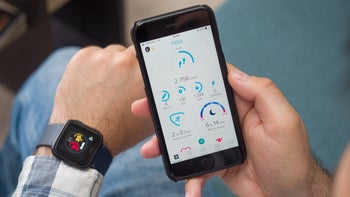Several Fitbit devices get a handy new health feature the Apple Watch can't rival just yet

Looking at Fitbit's sales numbers and especially growth rate (or lack thereof) in an otherwise booming wearable device industry these last few years, you might be wondering why Google is so keen to spend $2.1 billion on acquiring the 2007-founded American company. But it's important to remember we're talking about a pioneer of the activity tracker market here, and in many ways, Fitbit has managed to stay well ahead of the rapidly improving competition all these years.
For instance, while its Ionic and Versa smartwatches aren't exactly market leaders in terms of official app support, their list of health monitoring tools remains pretty much unrivaled. Several new features and significant enhancements of existing ones were unveiled just a couple of months ago and rolled out as part of an over-the-air software update shortly thereafter, and according to TizenHelp, another notable add-on is being enabled as we speak in the US to offer even more insight into the well-being of select Fitbit device owners.
Namely, those in possession of the aforementioned Ionic and Versa, as well as the Versa Lite and Versa 2 smartwatches and even the Charge 3 fitness band. If you're wondering what all these products have in common and other Fitbits don't share, the answer is a blood oxygen saturation monitoring feature made possible by a so-called SpO2 sensor.
This was obviously built into all those devices to begin with, but for some reason, it was essentially left disabled until now. Keep in mind that the Ionic is more than two years old, so this functionality has been a long time coming.
If you're lucky, all you need to do to get a cool new graph in your Fitbit app is, well, update said app to its latest version. The graph will show you fluctuations of your blood oxygen saturation level detected while you sleep, focusing on "big variations" that could reflect serious breathing issues. Of course, you shouldn't rely entirely on this data "estimated" by your Fitbit to self-diagnose disorders like sleep apnea, and instead seek medical attention if you do notice many big variations reported frequently.
Although this doesn't bring Fitbit any closer to rivaling the advanced life-saving capabilities of recent Apple Watch editions, it's definitely worth pointing out that the clear market leader can't monitor your blood oxygen saturation... or even track your sleep for that matter. The same goes for Samsung's fitness-centric Galaxy Watch Active lineup (minus the sleep tracking part), but there are actually a number of Garmin, Huawei, Amazfit, and Withings products around featuring fully functional SpO2 sensors of their own.










Things that are NOT allowed: